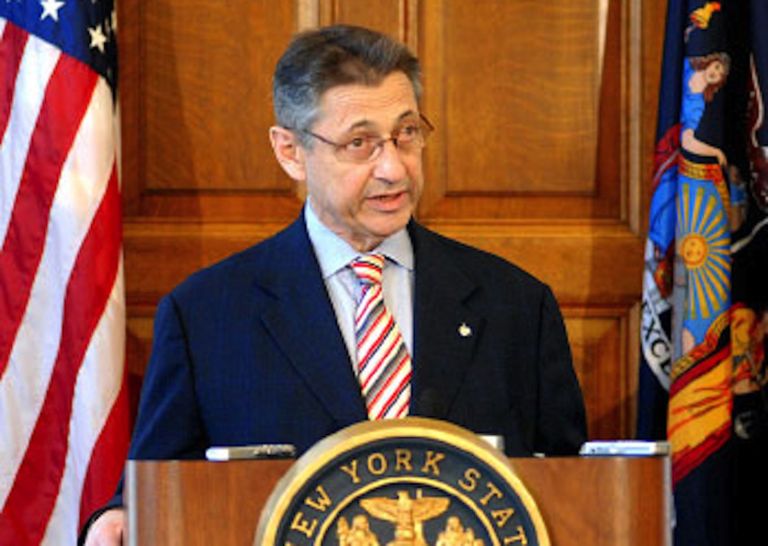
Two years after he was convicted of corruption — a conviction that was overturned last year — former state Assembly Speaker Sheldon Silver returned to court this week for his retrial.
In 2015, a jury convicted Silver, a Democrat from Manhattan, of honest services fraud, extortion and money laundering for receiving money in exchange for official actions benefiting a New Hyde Park-based real estate firm, Glenwood Management, and a Manhattan physician, Dr. Robert Taub.
But his conviction was overturned last summer when a panel of three judges determined that Sheldon’s conviction was invalid under a 2016 Supreme Court decision.
“We are grateful the court saw it our way and reversed the conviction on all counts,” Steven Molo and Joel Cohen, Silver’s Manhattan lawyers, said in a joint statement at the time.
A few weeks later, the conviction of former state Senate Majority Leader Dean Skelos and his son Adam was likewise overturned.
The Skeloses, both from Rockville Centre, were convicted in December 2015 of bribery, extortion and conspiracy. Skelos was found to have used his power in Albany to secure payments from Glenwood Management, Physicians’ Reciprocal Insurers in Roslyn and Arizona-based environmental technology firm AbTech Industries.
Skelos’ retrial is set to begin in June.
Silver and Skelos can thank the Supreme Court’s ruling in McDonnell v. United States for their second chance.
In that case, involving former Virginia Gov. Bob McDonnell, the court narrowed the definition of what constitutes corruption for a public official. In the majority opinion, Chief Justice John Roberts wrote that acts such as receiving money to arrange a meeting or to tell an underling to consider a matter did not count as corruption.
But Roberts also wrote that public officials could still be prosecuted for “concrete” actions, such as filing a lawsuit or awarding a contract.
Although prosecutors were disappointed by the decisions to overturn the convictions, they said the evidence was still strong enough to obtain a conviction in the retrial.
“Although it will be delayed, we do not expect justice to be denied,” said Joon H. Kim, the acting U.S. attorney for the Southern District of New York, when the convictions were overturned.






